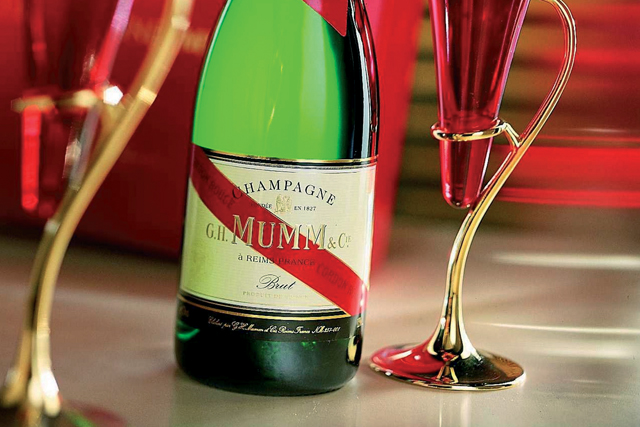I have never had a Princess Diana scrapbook; I have no opinion of any note about napkins. Any excitement I held about Kate and Wills tying the knot last year was due solely to the extra bank holiday the event led to. Yet already, with my own wedding still many months away, I have succumbed to the irrational stereotype of the marshmallow-brained bride-to-be.
The Temperley wedding dress I have set my heart on is no longer being made. The answer to a request to produce 'just one more' is a simple 'No.' Inevitably, and irrationally, I now want it even more - in fact, it has fast become a borderline obsession.
We all know the irrational allure of the waiting list. The eurozone may still be in crisis, but waiting lists for luxury goods such as Hermes Birkin bags and Patek Phillippe watches continue to rise.
Speaking at GH Mumm and Perrier-Jouet's Champagne Assembly last week, branding experts argued that brands should not only be unafraid of making consumers wait, but actively say no to them in order to increase the allure of their products.
In an age when marketers are forever reminded that 'real-time marketing' and instant response through social-media channels is crucial, waiting and anticipation are at risk of becoming lost arts.
Peter Cross, managing partner at Yellowdoor, says that prior to the recession, consumers didn't feel the need to wait; even luxury brands were accessible and malleable. However, he argues that one of the best ways for a brand to show integrity is to protect its ethos and, on occasion, say no to consumers' requests.
Karen Pine, professor of developmental psychology at the University of Hertfordshire, points out that 'real luxury' is all about anticipation. Many consumers, she explains, actually get far more pleasure from the build-up to making a purchase rather than the item itself.
That is, as long as the anticipation does not turn into disappointment.
THE UPSHOT
What the new relationship between brands and consumers means for marketers
The slow movement
Food is not the only slow movement to have gained in popularity in recent years. The relentless stream of technology, social-media chatter and competing devices are taking a toll on consumers' attention spans. Trend-watchers believe the desire for breathing-space and the simple art of anticipation will be key in 2012.
The conflicted consumer
Take a trip to Selfridges' flagship London store, and the chances are you will see many shoppers clutching Primark bags. Yellow Door's Peter Cross believes it is no longer possible to pigeonhole consumers. The same person who spent an evening researching and agonising over shaving £5 off their car insurance may quite happily spend £4000 on a watch, he explains.
The search for meaning
Pierre-Aymeric du Cray, global sales director of GH Mumm and Perrier-Jouet, says that when times are hard consumers focus on what made people happy in the past. 'Consumers are overwhelmed with globalisation and want to feel unique. Focusing on craftsmanship and the reinforcement of human values is key to this,' he adds.
The anticipation effect
Has living in a world of instant messaging and daily deals meant that consumers have lost the ability to wait? In the late 60s, researchers at Stanford University conducted the original 'Marshmallow Test'. Children were given the option of eating one marshmallow immediately, or waiting, to be given two when the researcher returned. It was found that those who were able to defer gratification went on to display a superior academic performance to the 'instant eaters'. Good things, it seems, do come to those who wait.
Nicola Clark is Marketing's head of features. Follow her on Twitter: @nickykc



